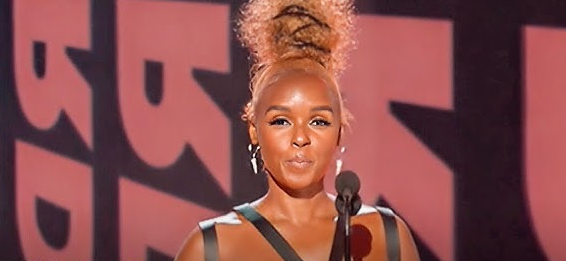Miami Fashion Week Emphasizes Sustainability and Inclusivity
Miami Fashion Week has once again captivated audiences with its groundbreaking approach, merging creativity with a commitment to sustainability and inclusivity. The event, which concluded on August 25, 2024, at the iconic Miami Beach Convention Center, highlighted the city’s burgeoning role as a significant player in the global fashion industry. This year, designers, models, and influencers collaborated with a shared vision: to redefine the standards of fashion creation and consumption for a more equitable and ecological future.
Sustainability Takes Center Stage
This year’s event operated under the unifying theme of “Fashion Forward: A Greener Tomorrow,” showcasing collections that prioritize environmental responsibility. The runway was awash with innovations made from biodegradable fabrics, upcycled materials, and plant-based dyes. A notable highlight was Colombian designer Valeria Montes, whose ethereal gowns, crafted entirely from recycled ocean plastics, received a standing ovation. This endeavor embodied both artistry and environmental advocacy, resonating powerfully with the audience.
Additionally, Miami’s own Luis Herrera made waves by debuting a menswear line that emphasizes textiles made from hemp, a renewable resource that continues to gain attention in sustainable fashion circles. In a press conference, Herrera remarked, “This is more than a trend; it’s a movement. We’re proving that sustainable fashion can be luxurious, innovative, and accessible.” He epitomizes the new generation of designers who seamlessly intertwine ethical practices with aesthetic appeal, catering to a more conscious consumer base.
Addressing Fashion and Climate Change
The event was not solely centered on fashion shows; it also served as a platform for important discussions. Panel debates tackled the pressing issues of fashion’s environmental impact and potential reforms needed within the industry. Experts provided insights into the challenges and opportunities that lie at the intersection of fashion and climate change. Their dialogues sparked thought-provoking discussions on how the industry can collaborate to create change and minimize its carbon footprint, laying the groundwork for future innovations in sustainable practices.
Diversity and Inclusivity on the Runway
Perhaps one of the most heartening aspects of Miami Fashion Week 2024 was its commitment to inclusivity. Designers showcased models of all body types, ages, and ethnicities, reflecting the cultural diversity that Miami represents. The captivating finale of Afro-Cuban designer Elena Torres’ show was particularly memorable, as models of varying abilities graced the runway with confidence, illustrating that beauty transcends conventional boundaries. This celebration of diversity marked a significant shift in representation within the fashion industry, emphasizing that fashion should be accessible and inclusive for all.
A Citywide Celebration of Culture
Miami Fashion Week didn’t just stop at the runway. The event expanded into a citywide celebration that included pop-up shops, art installations, and live performances, creating a vibrant atmosphere throughout the city. Local businesses reaped the rewards of increased foot traffic, as restaurants and boutiques participated with special promotions inspired by the event. This integration of fashion and local culture embodied the spirit of Miami, engaging both residents and visitors in a dynamic and interactive experience.
Miami’s Role as a Fashion Pioneer
As Miami Fashion Week 2024 came to a close, it emerged not only as a pivotal fashion event but also as a beacon for the future of the fashion industry. The event inspired designers and attendees alike, galvanizing a movement centered around sustainability and inclusivity. With the world’s eyes turning toward eco-conscious initiatives, Miami is poised to influence global trends and set a powerful example for other cities to follow.
Conclusion
Miami Fashion Week has made a resounding statement about the necessity of sustainability and inclusivity in modern fashion. By showcasing innovative designs while prioritizing environmental and social responsibilities, the event has solidified Miami’s status as a pioneer in the fashion realm. As the industry continues to evolve, the values underscored at this year’s Fashion Week will undoubtedly resonate far beyond the runways, encouraging a more thoughtful approach to fashion consumption and creation worldwide.
FAQs
What is the theme of Miami Fashion Week 2024?
The theme for Miami Fashion Week 2024 was “Fashion Forward: A Greener Tomorrow,” emphasizing sustainability and environmental responsibility in the fashion industry.
How did designers incorporate sustainability into their collections?
Designers utilized biodegradable fabrics, upcycled materials, and plant-based dyes in their collections to showcase environmental consciousness. Some standout examples included gowns made from recycled ocean plastics and menswear crafted from hemp-based textiles.
What role did inclusivity play in this year’s event?
This year’s Miami Fashion Week featured models of various body types, ages, and ethnicities. Efforts were made to celebrate diversity, including a memorable finale from Afro-Cuban designer Elena Torres that featured models of varying abilities.
Were there any discussions or panels at the event?
Yes, alongside runway shows, the event featured panel discussions that explored the relationship between fashion and climate change, discussing the industry’s environmental impact and potential pathways for reform.
How did the event benefit local businesses?
Local businesses benefited from increased foot traffic during the Fashion Week events, as restaurants and boutiques engaged in promotions inspired by the festivities, which fostered a sense of community and celebration throughout the city.

